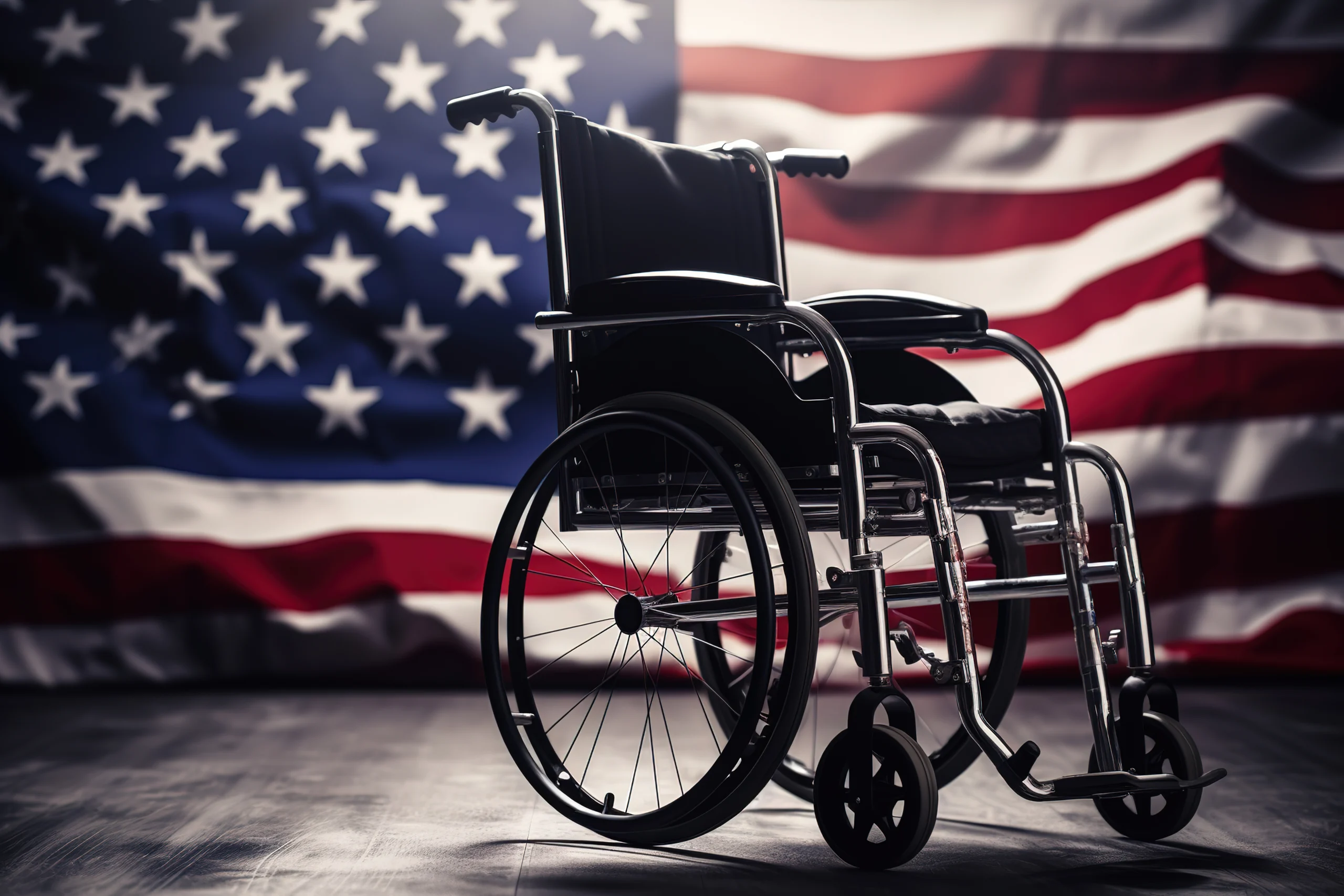Recent Posts
Categories
Establishing Service Connection for Schizophrenia
Our mental health affects us in ways that we don’t fully understand. Every event in our lives takes its own toll. Serving in our nation’s military is an honor for everyone who has taken up the task, but it is a stressful and demanding experience. Many veterans experience mental health conditions like schizophrenia after serving their country.
In addition to the physical challenges, military service can have a serious impact on mental health. Even without combat, the emotional stress can lead to conditions like schizophrenia, PTSD, and depression, which can change your quality of life forever. These conditions should be recognized and fairly compensated. Here is a guide to help you understand Schizophrenia better and how to receive VA disability compensation for it.
Understanding Service Connection and Schizophrenia
The stressors of serving in the military can have a long lasting effect on our veterans that can trigger a trauma response which can lead to mental illness like schizophrenia. Understanding service connection for schizophrenia is crucial. This process involves proving that the military burdens of service you experienced either caused your schizophrenia or worsened a pre-existing condition. While this may be a time consuming process, it can significantly impact your ability to receive VA disability benefits and provide essential resources for managing your condition and living a fulfilling life.
What is Service Connection?
Service connection is a determination made by the Department of Veterans Affairs (VA) that links a veteran's current medical condition to their military service. To qualify for VA disability benefits, a veteran must establish that their condition was either incurred or aggravated during their time in service.
How Does it Apply to Schizophrenia?
Schizophrenia is a severe mental health disorder that can significantly impact a veteran's daily life. Establishing service connection for schizophrenia involves demonstrating that the condition began during military service or worsened due to service-related factors. Regardless of whether you saw active combat, the rigors of military service will affect your life after serving. Combat can of course exacerbate the stress on your mind leading to a schizophrenia diagnosis, but it is not a definitive prerequisite.
The Burden of Proof
Veterans seeking service connection for schizophrenia must meet a significant burden of proof, which involves providing comprehensive and compelling evidence to support their claim. This means that they need to demonstrate a clear and direct connection between their military service and the diagnosis of schizophrenia.

Proving In-Service Occurrence or Aggravation
Establishing a service connection for schizophrenia requires demonstrating that the condition either originated during military service or was aggravated by it. This critical step in the claims process involves providing compelling evidence that links the onset or worsening of the disorder directly to the veteran's time in service.
Whether through documented incidents that occurred during deployment or the impact of unique stressors faced while serving, gathering sufficient proof is essential. Understanding the nuances of this requirement can significantly influence the outcome of a disability claim, making it imperative for veterans to present a well-rounded and thorough case.
Inception During Service
The military environment can be a significant risk factor for schizophrenia. Factors like separation from loved ones, the immense stress of combat, and witnessing traumatic events can all contribute to the development of schizophrenia in veterans.
To prove service connection, a veteran must show that schizophrenia was diagnosed during their time in service or within a certain period after discharge. Gathering evidence is crucial here. Medical records from both service and the VA, along with personal statements from yourself or those who witnessed the onset of symptoms, can create a strong paper trail to link your diagnosis to your military service.
Aggravation of Pre-existing Condition
Even if you were diagnosed with schizophrenia before entering the military, you may still be eligible for VA benefits. The key here is to demonstrate that your military service significantly worsened your existing condition. This can be proven by showing a clear worsening of symptoms during or after service. By building a strong case that the military environment exacerbated your condition, you can increase your chances of receiving well-deserved VA benefits.
The Role of Stressors
Military service exposes veterans to a unique constellation of stressors that can significantly impact mental health. These stressors can have a dual effect: triggering the onset of schizophrenia in individuals who may have been predisposed to the condition, or exacerbating symptoms in veterans with pre-existing schizophrenia.
Documenting these stressors is crucial for establishing a service connection for your schizophrenia claim. Examples of such stressors include:
Combat exposure: Witnessing violence, experiencing injuries, and the constant threat of danger can be incredibly traumatic and contribute to the development or worsening of schizophrenia.
Deployment burdens: The isolation, long separations from loved ones, and harsh living conditions experienced during deployments can be significant stressors that negatively impact mental well-being.
Military sexual assault (MST): Unfortunately, MST is a reality for many veterans, and the trauma it inflicts can be a major trigger for schizophrenia.
Military training rigors: The demanding physical and psychological challenges of military training can be overwhelming and contribute to the development of mental health conditions.
Additional Compensation
Schizophrenia can have a cascading effect on a veteran's mental and emotional well-being, often leading to the development of secondary conditions. These conditions, such as depression, anxiety, and substance abuse disorders, can significantly impact a veteran's daily life and ability to function.
The good news is that veterans may be entitled to additional compensation for these secondary conditions if they can establish a clear connection to their service-connected schizophrenia. This connection can be built by demonstrating how the symptoms of schizophrenia directly contribute to the development of the secondary condition. For instance, the social isolation and negative thoughts associated with schizophrenia can lead to depression, while the difficulty managing stress can exacerbate anxiety.
How Can a VA Lawyer Help You?
Navigating the VA claims process can be complicated, and having a knowledgeable VA lawyer can make a significant difference in the outcome of your claim. A lawyer can help you gather evidence, complete forms accurately, and represent you throughout the process, ensuring you don't miss any crucial steps that could delay or weaken your case.
At Wettermark Keith, we are accredited by the VA to help veteran’s file their VA benefits claim. Our experienced attorneys understand the complexities of the VA system and are dedicated to guiding you through every step of the process. We work tirelessly to ensure that you receive the benefits you deserve, providing the support and expertise needed to effectively present your case and secure your rightful compensation.
Contact Wettermark Keith Today for Industry-Leading VA Representation
At Wettermark Keith™, we have an excellent reputation as one of the most accomplished personal injury firms in the country. We offer a diverse range of practice areas, including personal injury cases, auto wrecks, trucking wrecks, nursing home abuse, medical malpractice, on-the-job injuries, social security, and VA disability, to name just a few. At Wettermark Keith, we believe in taking cases personally. Our purpose is to practice with care and compassion - to tell our clients' stories and make their voices heard. We achieve this by building strong relationships based on constant communication and an unwavering dedication to truth and trust.
Frequently Asked Questions
To prove that your schizophrenia is service-connected, you need evidence such as service medical records, VA medical records, personal statements, expert opinions, and buddy statements linking your condition to your military service.
Finding a qualified expert to write a nexus letter can be crucial to the success of your claim. Start by seeking recommendations from your VA lawyer, who may have contacts with experienced professionals familiar with the VA claims process.
Additionally, local veteran organizations can often provide resources or referrals to mental health professionals who have worked with veterans on similar claims. Consider reaching out to mental health professionals such as psychologists and therapists who specialize in military-related issues or have a history of writing nexus letters.
Yes, you can still qualify for VA disability benefits for schizophrenia even if your diagnosis occurred after leaving military service. The key factor is establishing a connection between your service and the condition. This can be done by presenting evidence that demonstrates how your military experiences—such as exposure to combat or other stressors—may have contributed to the development or worsening of your schizophrenia. If you have medical documentation indicating that the condition was likely influenced by your service, this can strengthen your case for obtaining benefits.
In-service stressors can significantly impact mental health and may contribute to the onset or exacerbation of schizophrenia. Veterans often face various stressors, including combat exposure, traumatic events, and the overall pressures of military life. These experiences can lead to increased psychological distress, which may trigger or worsen mental health conditions like schizophrenia. Research has shown that trauma and high-stress environments can alter brain chemistry and functioning, potentially leading to the development of psychiatric disorders. Documenting these stressors is essential in building a compelling case for service connection.
The time frame for receiving a decision on a schizophrenia disability claim can vary widely, typically ranging from a few months to over a year. Several factors influence this timeline, including the complexity of your case, the thoroughness of the evidence submitted, and the current workload of the VA. If your claim is straightforward and well-supported, it may be processed more quickly. However, more complicated claims or those requiring additional evidence or examinations can significantly extend the decision period. Staying informed about the status of your claim and being prepared to respond to any VA requests can help facilitate a smoother process.
YOU DON’T HAVE TO DO THIS ALONE
CONTACT VA DISABILITY LAWYERS
To learn more about our law firm, our services, how to access our veterans law resources, and more, contact us today.
You get a free consultation and we won’t charge you a dime until we’ve won your case.


